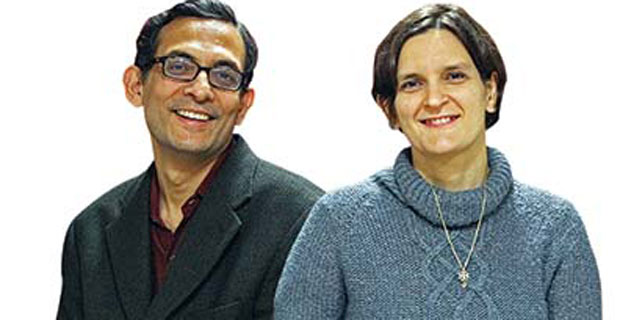Dignity for all, roar rockstar economists Abhijit and Esther
Dressed in ethnic Indian wear and precipitating ...
“If the poor are given assets, for example cows and goats, and basic training to start a business, over a period of time they inculcate a confidence to stand on their feet and make ends meet. This was first tried in Bangladesh and seven other countries later,” Banerjee said. Talking about the economic slowdown in India, Banerjee said that it was important that there were no more cuts in corporate taxes. “It needs to be understood that the corporate sector is not short of cash. Just that it is not investing. What you need to do is get the demand side going. Get the money in the hands of the people, and they will spend. This government has ensured that almost everybody has a bank account; therefore the infrastructure is in place. Several measures can be taken to arrest the downward slide of the economy,” Banerjee said.
At a time when farm loan waivers have become an almost everyday news, Banerjee stressed on the need to have a well-oiled machinery that can provide relief to the distressed. “I don’t think waivers are very efficient. If a drought destroys crops, only those farmers who had taken a loan would get a waiver, for others, there is absolutely nothing. They won’t get any kind of relief,” he said.
The duo along with Sendhil Mullainathan co-founded J-Pal (the Abdul Latin Jameel Poverty Action Lab), which has offices in every continent. It conducts studies in 80 countries, with the largest set-up being in India boasting of 200 staff members. “When we were studying the impact of women as head of panchayats, a field officer said that they were merely puppets. However, our research proved that they may be shy and not talk much, but had done some remarkable work in creating infrastructure,” said Duflo.











Comments.